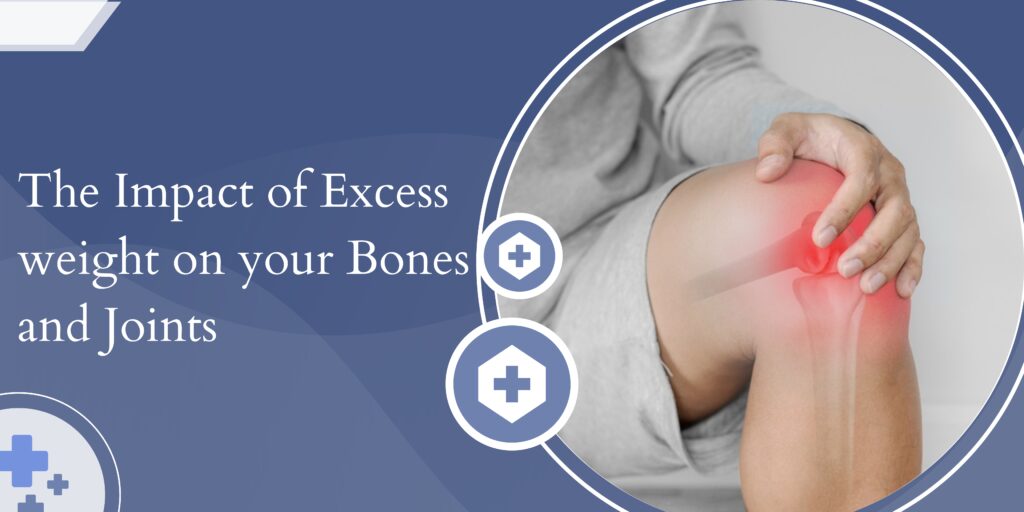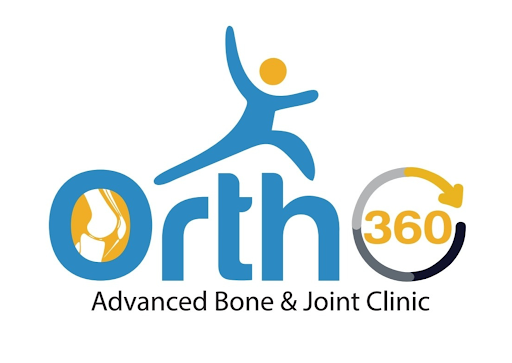
The Link Between Obesity and Orthopedic Injuries: What You Need to Know
Obesity has become a severe problem in the current, growing world. Becoming obese affects the function of other body parts and hinders daily activities. In the United States it is reported that 39% of people are affected by obesity. Becoming obese is to gain excess weight beyond the limit. It mainly puts one at the risk of orthopedic injuries and orthopedic problems. It puts pressure on the knee joint as well as the bones in the leg region making them more susceptible to injury. In this blog let us discuss the link between obesity and orthopedic conditions.
What is obesity?
When a person’s body mass index (BMI) is 30 or higher then it leads to obesity. It is a measurement of fat in a person’s body taking height and weight into consideration. BMI is directly proportional to the person’s body fat. People of all age categories are affected by this medical condition.
Link between obesity and orthopedic conditions
Do you know that there is a strong connecting link between obesity and orthopedic injuries? Obesity increases the pressure on the joints, specifically on the knees and hips, and puts extra pressure on the bones and muscles in the lower region. This overweight can lead to osteoarthritis, which is a kind of joint condition that causes pain, stiffness, and swelling in the affected region.
The Risks of Orthopedic Injuries in Obese Individuals
Orthopedic injuries can have a huge impact on the quality of life of obese people. For example, fractures in the lower body region can make it difficult to walk, stand, or perform daily activities. They can lead to long-term disability, decreased mobility, and a huge risk of falls.Moreover, there can be more complications to treat these injuries in obese individuals due to excess weight. The complications can be wound infections , blood clots etc. This set of people require a long period of rehabilitation, which can slow their recovery and elevate the risk of complications as well.
Preventive strategies
1.Weight Loss: Losing weight can decrease the pressure on the knee and hip joints and the bones in the lower region which reduces the risk of Weight loss can be achieved through proper diet and consistent exercises.
2.Physical Activity: Regular exercising strengthens the muscles and improves flexibility, reducing the risk of certain injuries. Obese individuals are highly recommended to do low-impact exercises like swimming, walking, or cycling etc.
3.Adequate Nutrition: Eat low-fat and high-calcium and vitamin D foods to prevent obesity and also strengthen bones.
It sounds scary, right? Knowing how obesity can affect bone health. But, worry not, because we got you the best orthopedic doctor Kartheek Telagareddy in Hyderabad at ortho360. For all your joint pains and other orthopedic health concerns our expert doctor is at hand to offer you the best treatment. He specializes in pain management, sports medicine and other orthopedic treatment. He is also the best joint replacement surgeon in Hyderabad with proven experience. You can even get the best physiotherapy treatment at ortho360 along with a pharmacy facility. Why wait when you have an open door to meet Doctor Kartheek Telhgareddy at Ortho360? Contact us right now to book an appointment


I don’t think the title of your article matches the content lol. Just kidding, mainly because I had some doubts after reading the article.
Your article helped me a lot, is there any more related content? Thanks! https://accounts.binance.com/ro/register-person?ref=V3MG69RO
Thank you for your sharing. I am worried that I lack creative ideas. It is your article that makes me full of hope. Thank you. But, I have a question, can you help me?
Thank you for your sharing. I am worried that I lack creative ideas. It is your article that makes me full of hope. Thank you. But, I have a question, can you help me?
Thank you for your sharing. I am worried that I lack creative ideas. It is your article that makes me full of hope. Thank you. But, I have a question, can you help me?
Thank you for your sharing. I am worried that I lack creative ideas. It is your article that makes me full of hope. Thank you. But, I have a question, can you help me?
Can you be more specific about the content of your article? After reading it, I still have some doubts. Hope you can help me.
Your article helped me a lot, is there any more related content? Thanks!
Your point of view caught my eye and was very interesting. Thanks. I have a question for you. https://www.binance.com/en-IN/register?ref=UM6SMJM3
Your point of view caught my eye and was very interesting. Thanks. I have a question for you.
I don’t think the title of your article matches the content lol. Just kidding, mainly because I had some doubts after reading the article.
Thanks for sharing. I read many of your blog posts, cool, your blog is very good.
Thank you for your sharing. I am worried that I lack creative ideas. It is your article that makes me full of hope. Thank you. But, I have a question, can you help me?
Thank you for your sharing. I am worried that I lack creative ideas. It is your article that makes me full of hope. Thank you. But, I have a question, can you help me?
Your point of view caught my eye and was very interesting. Thanks. I have a question for you.
Thank you for your sharing. I am worried that I lack creative ideas. It is your article that makes me full of hope. Thank you. But, I have a question, can you help me?
Your article helped me a lot, is there any more related content? Thanks!
Your article helped me a lot, is there any more related content? Thanks!
Your article helped me a lot, is there any more related content? Thanks!
Your article helped me a lot, is there any more related content? Thanks!
Your point of view caught my eye and was very interesting. Thanks. I have a question for you.
Thank you for your sharing. I am worried that I lack creative ideas. It is your article that makes me full of hope. Thank you. But, I have a question, can you help me?
Can you be more specific about the content of your article? After reading it, I still have some doubts. Hope you can help me.
Your article helped me a lot, is there any more related content? Thanks!
Your point of view caught my eye and was very interesting. Thanks. I have a question for you. https://www.binance.com/sv/join?ref=PORL8W0Z
I don’t think the title of your article matches the content lol. Just kidding, mainly because I had some doubts after reading the article.
Can you be more specific about the content of your article? After reading it, I still have some doubts. Hope you can help me.
Can you be more specific about the content of your article? After reading it, I still have some doubts. Hope you can help me.
Thanks for sharing. I read many of your blog posts, cool, your blog is very good.
Thank you for your sharing. I am worried that I lack creative ideas. It is your article that makes me full of hope. Thank you. But, I have a question, can you help me?
Thank you for your sharing. I am worried that I lack creative ideas. It is your article that makes me full of hope. Thank you. But, I have a question, can you help me?
I don’t think the title of your article matches the content lol. Just kidding, mainly because I had some doubts after reading the article.
I don’t think the title of your article matches the content lol. Just kidding, mainly because I had some doubts after reading the article.
Your article helped me a lot, is there any more related content? Thanks!